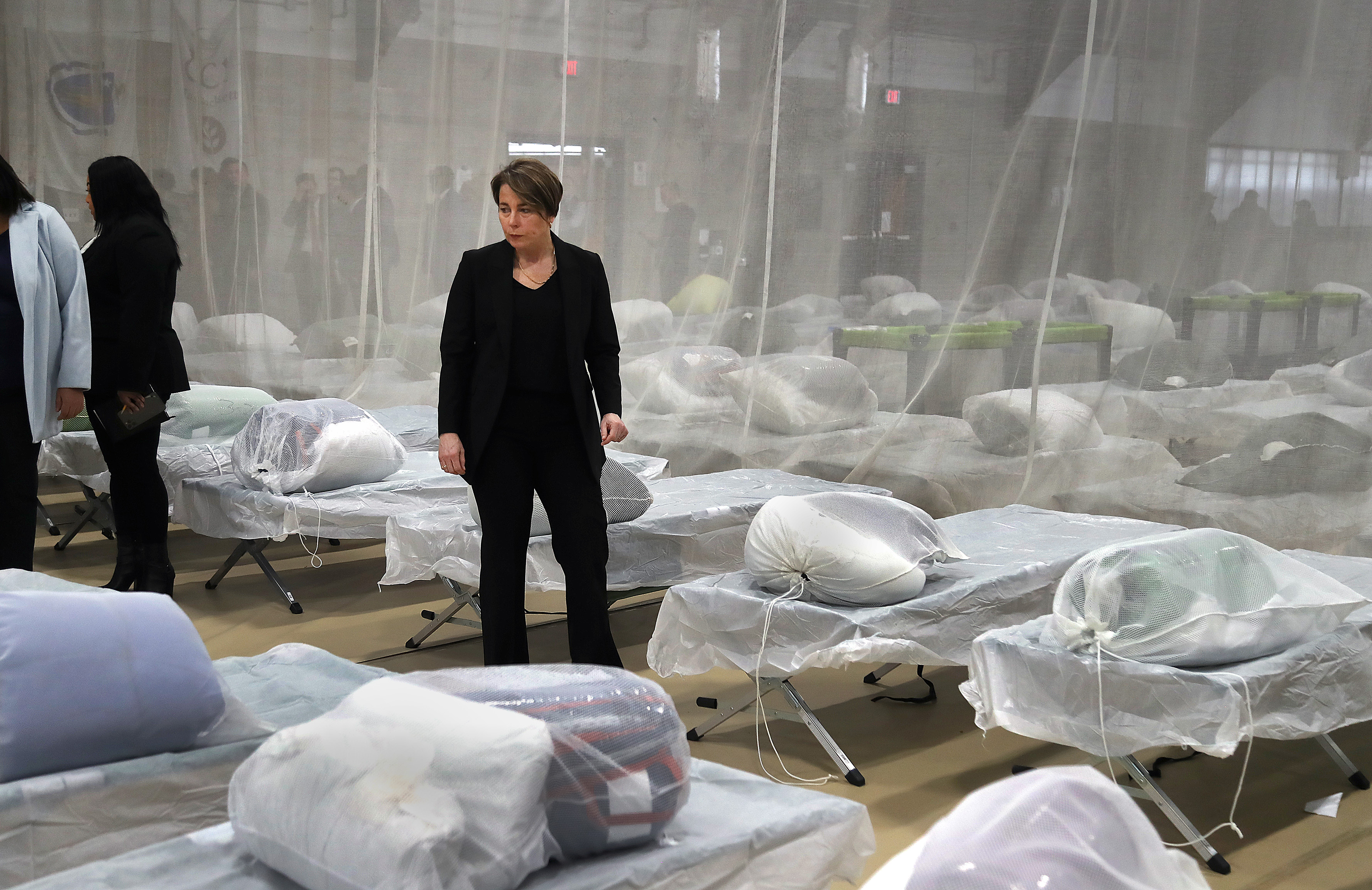The coffee hours hosted by Boston's Office of Neighborhood Services liaisons provide an opportunity for residents to ask questions or share concerns. Friday, most of the questions from residents in South Boston had to do with the plans to open a safety net shelter for homeless and migrant families in the Fort Point neighborhood.
A spokesperson for the Unitarian Universalist Association said the organization offered vacant space in its private office building at 24 Farnsworth St. to be used an emergency shelter.
WATCH ANYTIME FOR FREE
Stream NBC10 Boston news for free, 24/7, wherever you are. |
"My main concern is safety and the logistics of the street," said resident Diane Keliher. "It's a private street, it's not a city of Boston street. It's oftentimes, one car can go up and the rest of the people have to wait, so it's a congested area."
Others asked about who would be allowed to stay in the shelter and what kinds of resources would be provided to them. Some asked how they could help.
Get updates on what's happening in Boston to your inbox. Sign up for our News Headlines newsletter.
"Those questions are reasonable, like, including the food, how can we, how do we know there is food, how do we know there's facilities, and so on, and those things can be addressed, but the community was interested in how those things are addressed. It's all reasonable," said Fort Point resident Steve Hollinger. "I think the state needs to step up its game with communications."
The South Boston Liaison and the president of the Fort Point Neighborhood Association tried to address questions and concerns, noting many details had not yet been shared by the state and would be discussed at a virtual community meeting scheduled for Friday night.
"[The Boston Inspectional Services Department] has issued a temporary 90-day certificate of inspection for emergency use of the space with the option to renew," a Boston spokesperson said in a statement. "State building code allows this in times of emergency, as long as ISD conducts a prior inspection of safety systems -- which it has. The City has done this in the past, as during the pandemic and at the Melnea Cass site in Roxbury. The space's permanent use and occupancy remain unchanged."
Meanwhile, in Quincy, the Immigrant Family Services Institute gathered dozens of faith leaders, social service providers, legal experts and city and state officials, all working to help migrants in Massachusetts.
"For us to move people out of shelters, to move them out of the overflow, we need to start thinking different," said IFSI Executive Director Dr. Gerald Gabeau.
She added that housing is the most pressing issue.
"We cannot do this work without the community," she said. "So right now, we're talking about hosting families. So instead of being at the airport, do you have a room? Do you have a place where people can come?"
Melinda Priest, pastor of Awaken City Church, said the group is working with the Boston Mayor's Office of Immigrant Advancement to take stock of all the different resources available and facilitate coordination.
"They are creating this map for us so that we're able to see what are the different agencies," Priest said. "If you're a volunteer, if you're at a church, you can find out 'Who's offering conversational English or ESL classes,' or 'How can I volunteer at those?' 'Who is doing a clothing drive right now?' 'How do I step in with that and who is offering legal services and how do we participate with that?'"
Ivan Espinoza Madrigal, Executive Director of Lawyers for Civil Rights praised IFSI for convening various partners. "IFSI symposium is a step in the right direction, which is coming together to build bridges and solidarity across community, to be able to tackle the humanitarian crisis as a shared responsibility."
As the state opens emergency shelters across the commonwealth, including in Boston, City Councilor Ruthzee Louijeune says community members need to be included in the response.
"There is a lot of coordination that needs to happen on all levels of government and at the same time community members can't get lost in that. Their voices matter, a lot of community members want to support and want to be out and help us figure this out with our new arrivals but they don’t want to be left in the dark," she said. "They want to make sure that the community engagement process is keeping them at the center, so that's where the state city, everyone together needs to collaborate and do a better job of engaging community and also showing how there are more reasons, humanitarian, reasons to be supportive and there economic reasons for our city, as well."



